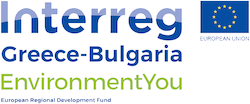Natura 2000 is a type of ecological network made up of sites designated on the basis of scientific criteria, in implementation of the EU Birds Directive and the EU Habitats Directive. These are the two main legal instruments governing biodiversity conservation in the European Union. The European ecological network Natura 2000 is the form the EU has chosen to preserve biodiversity and nature for future generations in the long term, ensuring their sustainable use.
The Natura 2000 network currently comprises around 26 000 protected areas, covering one fifth of the EU's terrestrial territory. It is the largest of its kind in the world and provides vital protection for Europe's most threatened species and habitats.
The network brings significant economic benefits - various estimates put the value at between €200 and €300 billion per year, or between 2% and 3% of EU GDP.
The 1979 Birds Directive (codified in 2009) aims to protect all wild birds in the EU, covering around 500 species. EU countries must identify and protect sites that are of particular importance for wild birds. Around 5 300 'Special Protection Areas' have been established so far.
The second piece of legislation, the 1992 Habitats Directive, obliges EU countries to protect the habitats of threatened species of plants and animals. The protected areas are known as 'Special Areas of Conservation'. The Habitats Directive covers around 1 500 rare and threatened species of plants and animals and around 230 species of habitats, including hay meadows, areas of low scrub and salt marshes.
Natura 2000 is not just a network of protected nature reserves. It takes into account that people and nature work best in partnership. The aim is not to ban economic activities, but to ensure that they are compatible with the conservation of valuable species and habitats.
The main objectives within the Natura 2000 sites are:
- Preventing activities that could seriously disturb species or damage habitats for which an area is designated as protected
- If necessary, take positive measures to maintain and restore these habitats and species to improve conservation
This approach has many advantages - by promoting sustainable forestry, fishing, farming and tourism in the long term, the future of the people who live in these areas and rely on these activities is secured.
In general, Bulgaria's obligations in relation to the Natura 2000 network are as follows:
- Identify the most appropriate number and size of sites for the protection of species and habitats in the Directives. These sites must be sufficient for the long-term maintenance and recovery of biodiversity within them. Special measures should be taken to protect wetlands of international importance
- Take measures to prevent the destruction or deterioration of habitats and the decline in the status of populations of species included in the Annexes to the Directives.

